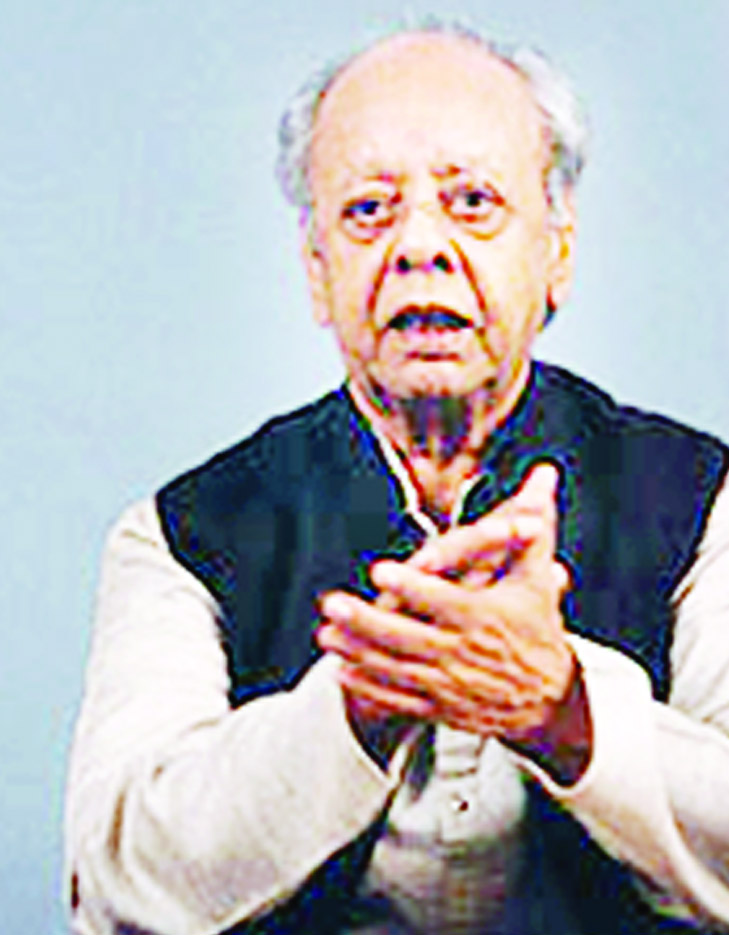Ravi Rohmetra
Ustad Allah Rakha Khan, the country’s leading Tabla Exponet was born on 29th April 1919 at Phagwal Village of Dist. SAMBA, Jammu in a Punjabi Gharana. His mother tongue was dogri. He became fascinated with the sound and rhythm of the tabla at the age of 12 years. He used to be fascinated by the sound of tabla while staying with his uncle at Gurdaspur. Being deeply influenced by the tabla sound , he in the teen age ran away from his home and became the disciple of Miyan Kadar Bakshi of Punjab Gharana who initiated him into the world music. He studied voice and Raag vidya under Ashiq Ali Khan of the patiala gharana.
His regimen of practice and dedication were legendary, hours upon hours of hard, disciplined practice, that would later pay off. He started his career in All India Radio as Staffer in Mumbai in 1940 and later composed music for a couple of hindi films between 1943 and 1948. In 1958, Ustad Allah Rakha Khan made his first international stage appearance in Japan along with Pandit Ravi Shanker. Ustad Allah Rakha Khan on the tabla and Ravi Shanker on the sitar, the Jugalbandi created a rare blend of music and earned international fame. It was during the period when foreigners took an instant liking for Indian music. In Mumbai he used to teach the students on the finer aspects of tabla at his “Ustad Allah Rakha Khan Institute of Music” at Shiva Ji park. He was married to Bavi Begum, and had three sons Tabla wizard Zakir Hussain, Fazal Qureshi andTaufiq Qureshi, a daughter, Razia, whose death preceded his by less than 24 hours. However, he still played as an accompanist, for soloists like bade Ghulam Ali Khan, Allauddin khan, Vilayat Khan, Vasant Rai, Ali Akbar Khan and most notably Ravi shankar.
The venerable master achieved world recognition in company of Shanker during his hey days in the 1960s, delighting audiences in the west with his percussive wizardry, not only as uncanny accompanist with flawless timing and sensitivity but also as a soloist where he was a master of improvisation, a prolific composer and an electric showman. The partnership was particularly successful, and his legendary and spellbinding performances with Shankar at Monterey POP Festival in1967 and the Woodstock festival in 1969 served to introduce classical Indian music to general western audiences. His eldest son, Zakir Hussain is also an accomplished tabla virtuoso. Ustad Allah Rakha Khan popularised the art of tabla, playing across the globe, elevating the status and respect of his instrument. Abba Ji (as he was affectionately known by his disciples) also bridged the gap between carnatic music and Hindustani music by playing with both renowned carnatic musicians and other Hindustani stalwarts.
Leading American percussionists in Rock n’ Roll such as the Grateful Dead’s Mickey Hart, admired him and studied his technique, benefiting greatly even from single meetings. Hart, an authority percussion in world music, said “Allah Rakha is the Einstein, the Picasso; he is the highest from of rhythmic development on this planet. Allah Rakha also collaborated with Jazz drummer Buddy Rich, on their 1968 album Rich Allah Rakha. Ustad allah Rakha khan was honoured with Padma shree Award in 1977 and was recipient of Sangeet Natak Academy Award in 1982. Ustad Allah Rakha Khan, who raised the tabla to the status of a solo instrument, died of heart attack on 3rd of Feb,2000 at the age of 81 years. He is survived by three sons and a daughter. The people in Jammu and Kashmir had great pride in this highly accomplished instrumental musician Allah Rakha. The people of Jammu still cherish the memory of a delightful performance by Pandit Shiv Kumar Sharma Santoor Maestro and Allah Rakha tabla wizard at Abhinav Theatre, Jammu, quite some time back. Speaking on the occasion, Allah Rakha recalled the thunderous applause both of them received in United States of America.
Trending Now
E-Paper


